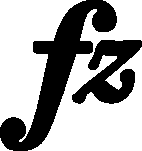




|
Dynamic markings of A |
|

|
||

|
||

|
||

|
Deletions and additions in FED |
|

|
Changes written into FEJ |
|

|
Changes in FES |
|

|
Changes in FEFr |
|

|
Under f sharp3 in bar 45 in A Chopin initially wrote 
 , just like in the preceding bars, but later changed the accent sign to whole-bar hairpins
, just like in the preceding bars, but later changed the accent sign to whole-bar hairpins  with the indication diminuendo written inside. In GE that version was reproduced quite faithfully, with only the letter 'z' omitted from
with the indication diminuendo written inside. In GE that version was reproduced quite faithfully, with only the letter 'z' omitted from  , which is quite justifiable as 'z' looks there like a part of 'f'. FE and EE repeat the version of GE with slight changes in spatial arrangement of the markings.
, which is quite justifiable as 'z' looks there like a part of 'f'. FE and EE repeat the version of GE with slight changes in spatial arrangement of the markings.
Having already published the work, Chopin altered the concept for planning out the dynamics of the entire piece, and particularly bars 45-53 (cf. bars 49-50, 52, and also 25-26). Perhaps the idea of the change came to his mind while he was listening to the work being played by his pupils during piano lessons - Nocturne has always been immensely popular. Chopin's entries – particularly in FEJ and FES – seem also to point to some emotional dissatisfaction felt by the composer when he was listening to the work in its original (unaltered) version.
In FEJ the sign  was not explicitly deleted, yet we are justified in believing that the addition of a big cres was to replace both diminuendo markings.
was not explicitly deleted, yet we are justified in believing that the addition of a big cres was to replace both diminuendo markings.
In FED, the  written in bar 46 probably means that despite the lack of crescendo marking in bar 45 that crescendo should be continued.
written in bar 46 probably means that despite the lack of crescendo marking in bar 45 that crescendo should be continued.
The mark  , written energetically in FES and extending over almost entire line of text, raises doubts as to its actually intended scope of validity. The intensification of dynamics throughout the entire bar 46 seems to contradict the musical sense of the fragment. That sigh should rather be interpreted as a suggestion to increase the sound intensity up to the beginning of bar 46 and remaining on the top of the reached wave of musical emotion.
, written energetically in FES and extending over almost entire line of text, raises doubts as to its actually intended scope of validity. The intensification of dynamics throughout the entire bar 46 seems to contradict the musical sense of the fragment. That sigh should rather be interpreted as a suggestion to increase the sound intensity up to the beginning of bar 46 and remaining on the top of the reached wave of musical emotion.
The thing worth noting is a balanced entry of Franchomme in FEFr, and particularly the replacement of  with
with  in bar 45, which corresponds to the notation of A. It remains an open question whether Franchomme successfully guessed the initial intention of Chopin or whether Chopin somehow communicated his vision to Franchomme. It is also possible that Franchomme had the opportunity to correctly read that detail in A placed in the archives of the company Breitkopf & Härtel for which FEFr was prepared.
in bar 45, which corresponds to the notation of A. It remains an open question whether Franchomme successfully guessed the initial intention of Chopin or whether Chopin somehow communicated his vision to Franchomme. It is also possible that Franchomme had the opportunity to correctly read that detail in A placed in the archives of the company Breitkopf & Härtel for which FEFr was prepared.
Compare the passage in the sources »
category imprint: Differences between sources; Corrections & alterations
issues: Annotations in teaching copies, Annotations in FED, Inaccuracies in GE, Annotations in FES, Annotations in FEFr, Authentic post-publication changes and variants, Annotations in FEJ
notation: Verbal indications
